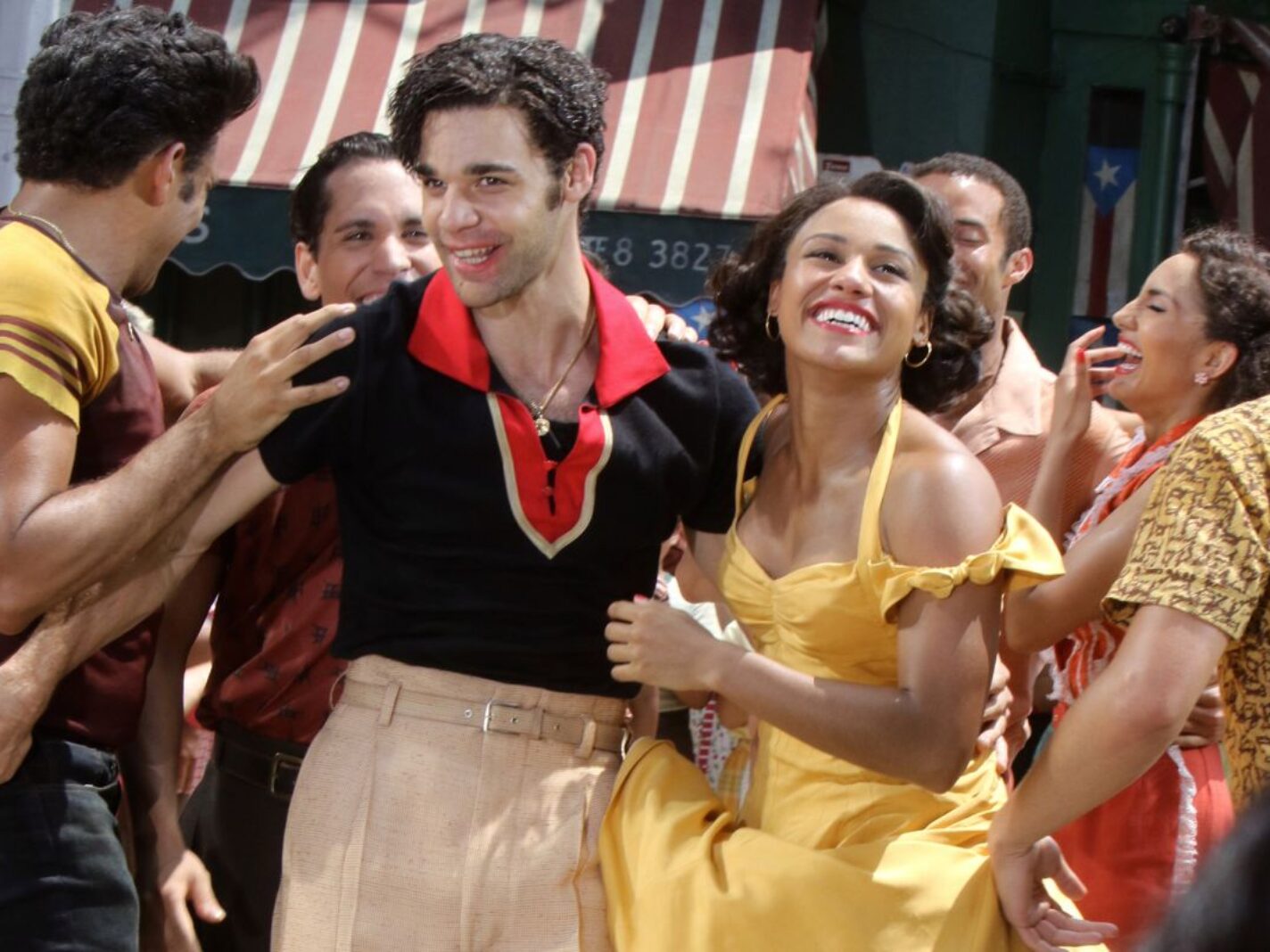Remezcla got a chance to speak with Ariana DeBose and David Alvarez about Steven Spielberg’s West Side Story. And like the rest of us, they understand the importance of this film, especially when it comes to representation that reflects our communities. Because this conversation never gets old.
We’re still fighting, day in and day out, to see ourselves properly represented in the media we consume. And whether you like West Side Story or not, you can’t deny the fact that this version of the movie is filled with landmark choices when it comes to our communities and who is included in the narrative.
This isn’t lost on DeBose, who plays Anita, the role made famous by Rita Moreno in the original version. She told Remezcla, “As a Latina, I felt tremendous responsibility towards this character. I’m very aware that many Latinos have many different opinions on West Side Story as a piece of work and how it has been representative of our people.”
DeBose saw this as the perfect opportunity to show the world who she is, that she’s not going away, and that she’s not the only one. “As an Afro-Latina, this was really exciting to basically say, “Hello, we’re here.” There’s not one way to be Latina. And we’re all beautiful and we’re all gorgeous and have so much to offer. And we have goals, dreams, and ambitions. And we are smart and we are joyful. We’re not all gang members. Or in a negative light.”
David Alvarez, who plays Bernardo aka the other half of Anita’s character, couldn’t agree more. He was proud of Steven Spielberg and the team that worked with him for giving us the opportunity to shine in a way we seldom do. And for his character Bernardo, it’s something he personally resonates with.
“For me, I had so much to draw from,” Alvarez explained, “My parents defected from Cuba in the ’90s in search of a better life. So I first-hand witnessed what it was like to grow up in a family that was struggling, trying to survive, learn a new language, and adapt to a new culture.”
Alvarez also couldn’t help but feel grateful to see this kind of representation as something happening in this day and age. “It’s been beautiful to watch this unfold in my generation. I never thought it would actually happen or that I’d be part of this almost revolution, this change. So, I’m so grateful that I get to be part of that change.”
Part of that change is also showing that we and our communities are not all alike. We are varied and that variety makes us interesting, dynamic, and a set of communities worth knowing about and investing in. And for DeBose, her being Afro-Latine was something she didn’t want to ignore or set to the side. She wanted to face it.
“From the moment that I auditioned and met Steven, it was something that I spoke about. He asked if there was anything he should know about and I said, “Well, I’m Afro-Latina. If you’re not going to explore that in the context of the piece, even in a subtle way, I don’t think you should hire me.”
Ultimately, it’s important to remember that all those in our communities matter and deserve to see themselves on the big screen. Because like DeBose said, “Again, we’re not a monolith. Afro-Latinos are real and our lived experiences should be validated in the same way that [David’s] experience is valid. And how we treat each other is important and it matters.”
West Side Story hits theaters on December 10, 2021.
